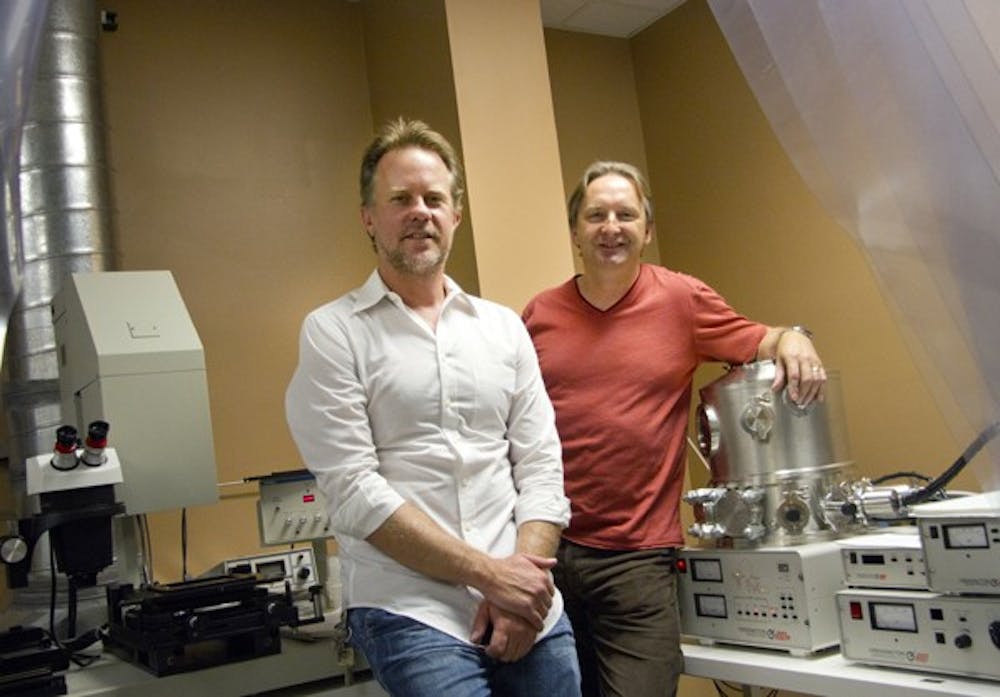Two ASU professors recently received a $1.7 million grant from the U.S. Department of Defense to develop technology capable of operating in extreme and hostile environments, such as space.
The grant will fund the work of professors Hugh Barnaby and Michael Kozicki, who are collaborating with other researchers, to make Chalcogenide-based memristor technology. Chalcogenide, a compound used in DVD technology, allows charged atoms to move through a system. The memristor, an incredibly tiny electronic device, is capable of withstanding extremely hostile conditions, where most electronics would suffer damage.
“The Department of Defense is interested in making (our) technology work for advanced defense applications, probably for space and strategic systems,” Barnaby said. “But they don’t ever really tell us.”
The memristor technologies developed by Kozicki and Barnaby are able to function in extreme temperatures from -387 to 440 degrees Fahrenheit — conditions found on Mars and Venus.
These technologies are also capable of withstanding exposure to high-radiation and corrosive bio-environments, such as those found in the human body, potentially improving medical treatments.
Barnaby said the development of memristor technology could have far-reaching, revolutionary effects in the field of nano-electronics as well. Barnaby said these memristors are less than 1 billionth of a millimeter cubed and are integrated into metal layers above traditional Silicon and require very little power to operate.
Kozicki has been working in nanoionics for nearly 15 years. This field of study involves ion movement, an indispensable aspect of hostile environment technologies. Kozicki said the development of memristor technology would be impossible without the help of professors such as ASU’s Keith Holbert and Boise State University’s Maria Mitkova.
“We got excited (about the potential for these new technologies) and joined forces to do research,” Kozicki said. “(Barnaby) recently joined our team because I know nothing about the radiation environments, whereas that’s his area of expertise. I’m more a specialist in the materials in these devices.”
Holbert, ASU’s sole nuclear engineer, is responsible for the radiation testing of the memristor devices.
“I will be using state-of-the-art Monte Carlo code to model the radiation physics behavior of the materials (developed by the research team),” Holbert said.
The Monte Carlo code is a computer algorithim that gives scientists a life-like simulation of random systems, such as fluids.
The group obtained the $1.7 million grant in July via the U.S. Department of Defense for developing science for nuclear effects protection. The grant is to be dispersed over three years.
The researchers said they believe these memristors will be used as a small-scale, low-power substitute for transistor switches.
Barnaby said while the future prospects of such technology look promising, there are no commercial products that utilize the Chalcogenide materials.
Barnaby said Chalcogenide is one of the main materials in the memristor technology. Other than that, all the other materials the team is working with, such as metals, insulators and semiconductors, are found in common appliances.
“We’ve done very well,” Kozicki said. “(Our technology is) being commercialized and there’s a lot of products coming out next year (that utilize our technology), everywhere from deep space exploration to assisting in nuclear reactor accidents like in Japan.”
Reach the reporter at doberhau@asu.edu
Click here to subscribe to the daily State Press newsletter.





